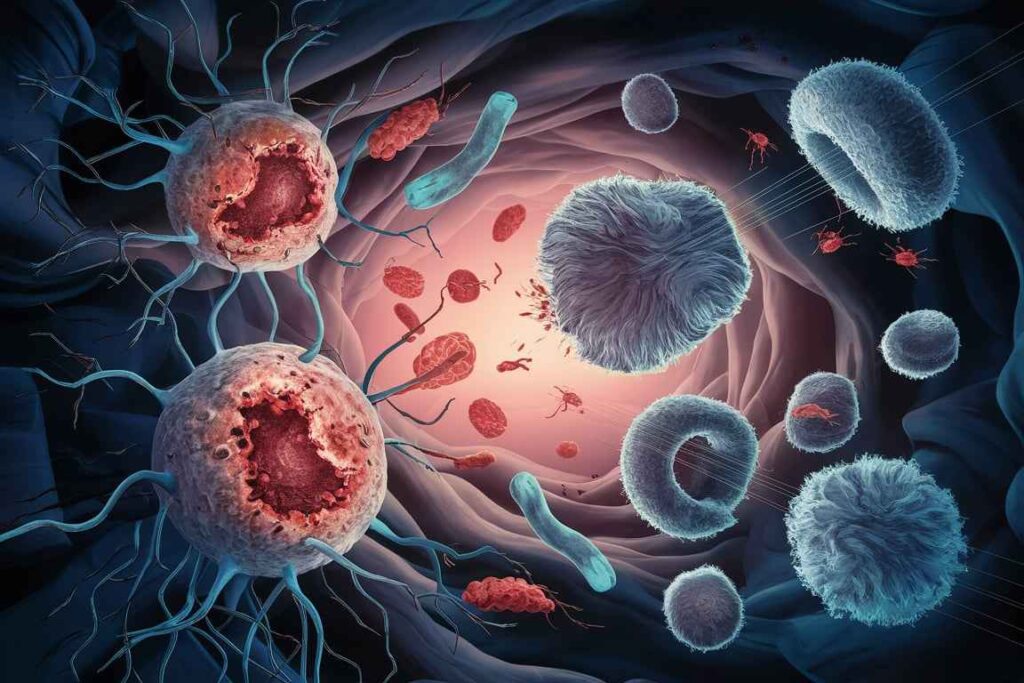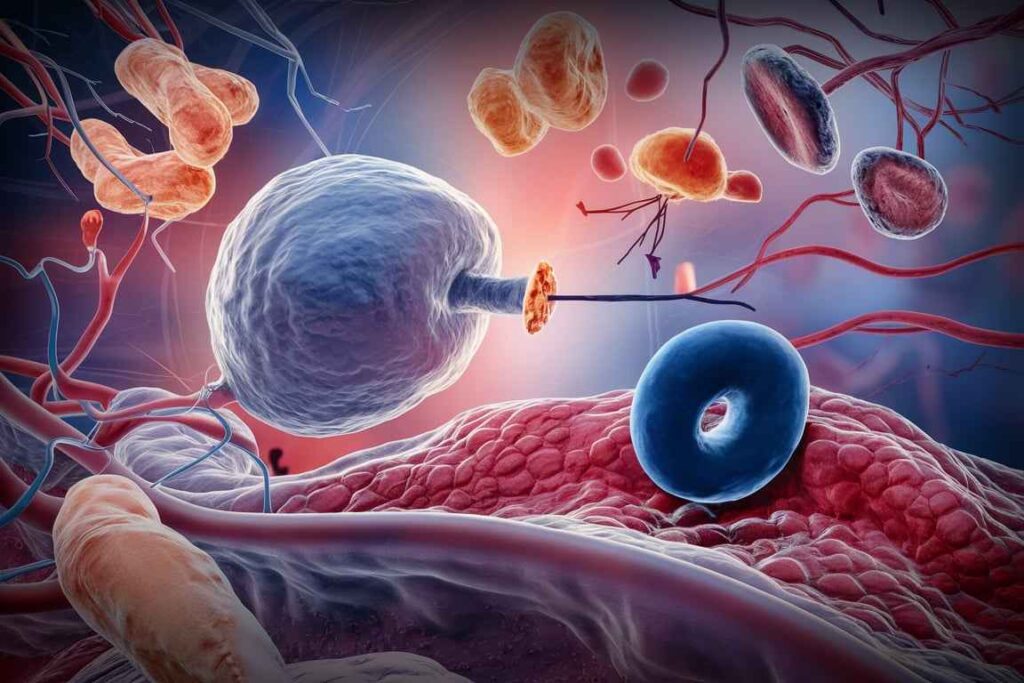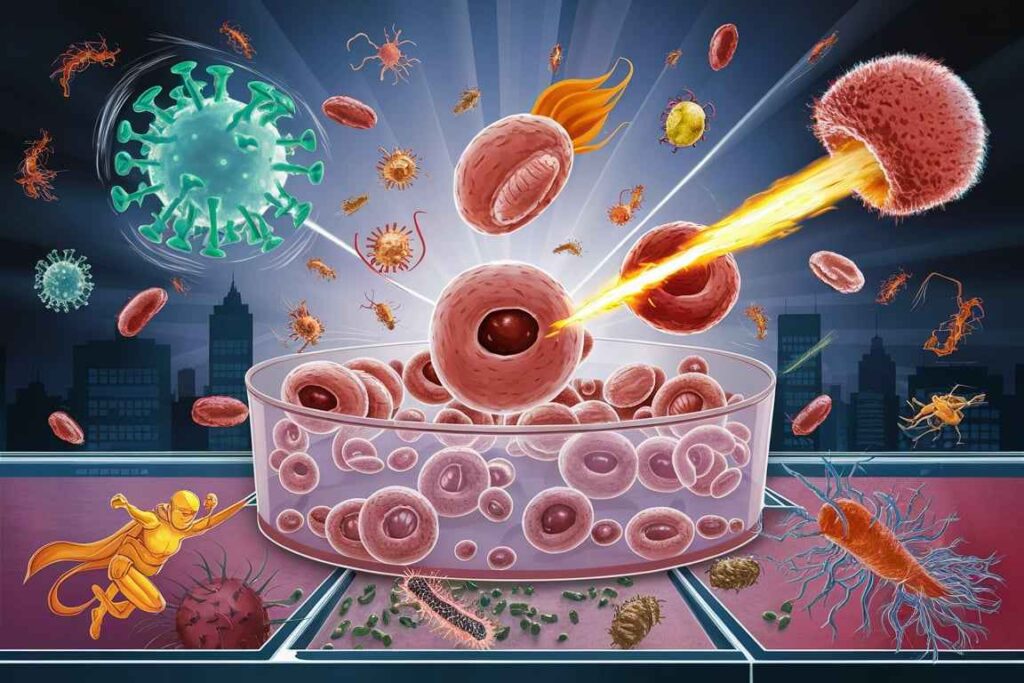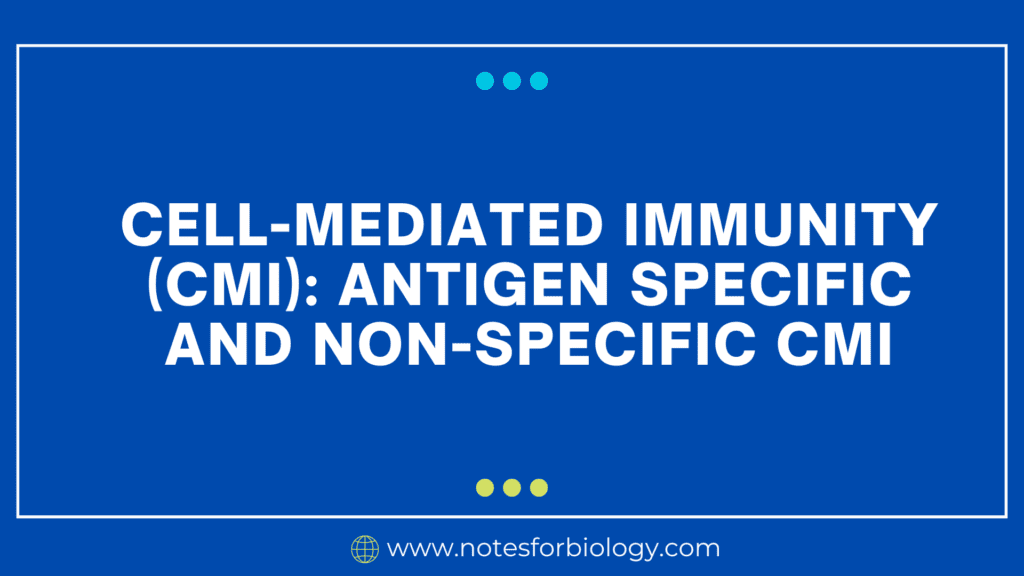Cell mediated immunity (CMI) is a critical component of the immune system that activates certain immune cells to combat infections, notably those caused by viruses, intracellular bacteria, and cancer cells. Cell mediated immunity does not use antibodies, but rather a variety of immune cells, especially T lymphocytes (T cells), to detect and eliminate infected or aberrant cells.
Table of Contents
Cell mediated immunity (CMI)
Cell mediated immunity (CMI) is a critical component of the immune system that activates certain immune cells to combat infections, notably those caused by viruses, intracellular bacteria, and cancer cells. CMI does not use antibodies, but rather a variety of immune cells, especially T lymphocytes (T cells), to detect and eliminate infected or aberrant cells.

Antigen-specific cell-mediated immunity
Antigen-specific CMI is the recognition of specific antigens by T cells. This specificity is an important aspect of the adaptive immune response. The major components and steps are:
1. Antigen Presentation
Antigen-presenting cells (APCs), which include dendritic cells, macrophages, and B cells, process antigens from infections and aberrant cells. These APCs show processed antigens on their surfaces using molecules known as Major Histocompatibility Complex (MHC) class I and class II.

2. Activation of T cells
- CD8+ T cells (cytotoxic T cells) recognize antigens presented by MHC class I molecules on infected or malignant cells. Once activated, these cytotoxic T cells can destroy their targets by triggering apoptosis.
- CD4+ T cells (helper T cells) recognize antigens presented by MHC class II molecules on APCs. When helper T cells are activated, they release cytokines that activate other immune cells such as cytotoxic T cells, B cells, and macrophages.
3. Clonal Expansion and Differentiation:
Activated T cells divide and differentiate into effector T cells, which perform immunological activities, and memory T cells, which offer long-term immunity.
4. Effector Functions:
- Cytotoxic T cells kill diseased or aberrant cells by releasing perforin and granzymes, which cause apoptosis.
- Helper T Cells: Secrete cytokines that enhance the activity of other immune cells, orchestrating a coordinated immune response.
Non-specific cell-mediated immunity
Non-specific CMI, also known as innate immunity, refers to immune responses that are not targeted to a specific antigen. This type of immunity, which involves diverse cells and mechanisms, serves as the initial line of protection against infections.

- Natural Killer (NK) Cells: NK cells can detect and kill virus-infected and tumor cells without requiring antigen presentation. They recognize stressed cells via a combination of activating and inhibitory receptors.
- Macrophages may engulf and destroy infections by phagocytosis. They also create cytokines, which assist attract and activate other immune cells.
- Dendritic cells collect antigens and trigger an adaptive immune response by delivering them to T cells. They also release cytokines, which affect the activity of other immune cells.
- Neutrophils: These cells are quickly recruited to infection sites, where they engulf and kill pathogens. They use enzymes and reactive oxygen species to destroy bacteria.
- Cytokines and chemokines are signaling molecules produced by various immune cells that assist coordinate the immune response by attracting and stimulating other immune cells at the site of infection or inflammation.
Summary
Antigen-Specific CMI: T cells recognize specific antigens presented by APCs, resulting in tailored immune responses to infected or aberrant cells.
Non-Specific CMI: Involves innate immune cells such as NK cells, macrophages, dendritic cells, and neutrophils, which provide immediate, broad-spectrum defense against infections without requiring prior antigen exposure.
Both antigen-specific and non-specific CMI are required for a strong and effective immune response, which works together to defend the body from infections and cancers.
Frequently Asked Question
What is Cell mediated immunity (CMI) ?
Cell-mediated immunity (CMI) is a critical component of the immune system that activates certain immune cells to combat infections, notably those caused by viruses, intracellular bacteria, and cancer cells.
What are the non-specific cell-mediated immunity ?
The non-specific cell-mediated immunity are
1. Natural Killer (NK) Cells
2. Macrophages
3.Dendritic cells
4.Neutrophils
5. Cytokines and chemokine
Related Article
Paper chromatography – Principle, Procedure, types and applications

